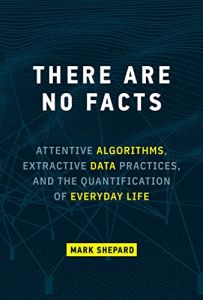Melden Sie sich bei getAbstract an, um die Zusammenfassung zu erhalten.

Melden Sie sich bei getAbstract an, um die Zusammenfassung zu erhalten.
Mark Shepard
There Are No Facts
Attentive Algorithms, Extractive Data Practices, and the Quantification of Everyday Life
MIT Press, 2022
Was ist drin?
Have people stopped caring about objective reality? How will life in a “post-truth” era affect humanity?
Recommendation
Professor Mark Shepard offers smart insights about the societal shift into what he calls a “post-truth” era. He warns that for-profit entities target consumers in ways that create “micro-publics,” each with its own socially constructed version of the truth. Shepard cites philosopher Bruno Latour, who described scientific facts as socially constructed, asserting that people tend to value most the information they get from trusted social networks. Shepard reflects on how the challenge of establishing a shared truth might affect humanity and urges readers to value common sense and strive for collaboration.
Summary
About the Author
Mark Shepard, associate professor of architecture and media study at Buffalo State University, edited the MIT Press book Sentient City: Ubiquitous Computing, Architecture, and the Future of Urban Space.


















Comment on this summary